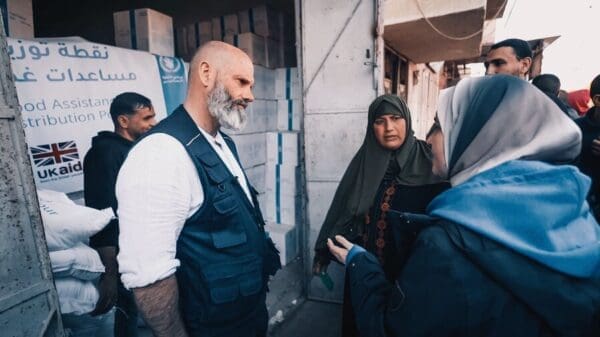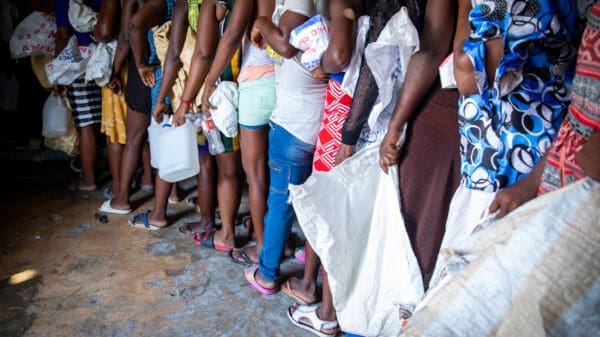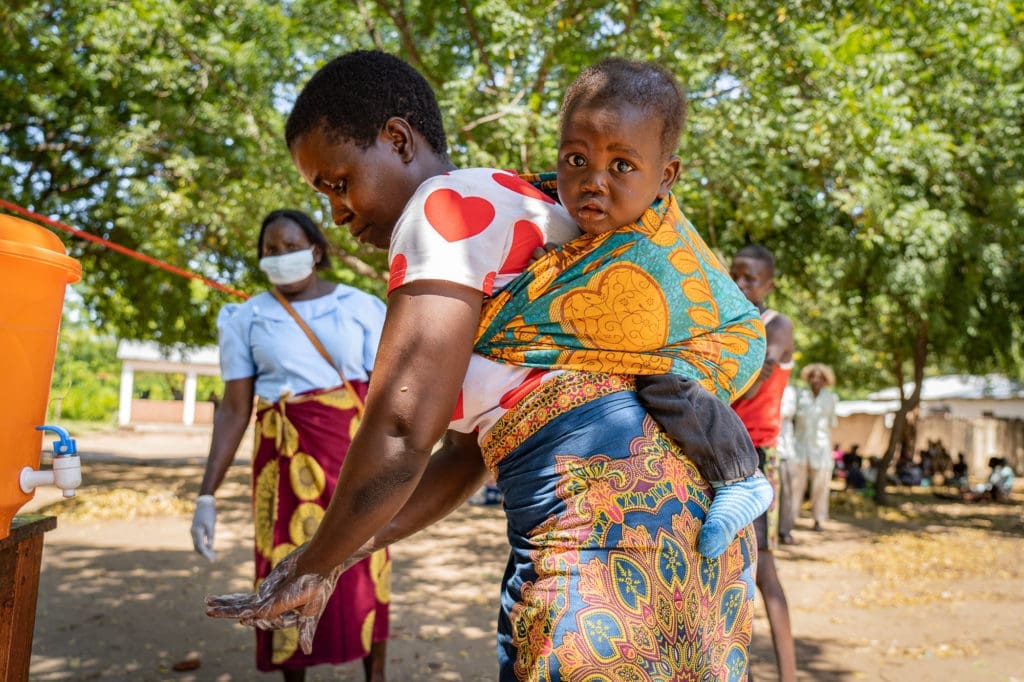
During the Pandemic, WFP Is Standing up to the Scourge of Childhood Hunger: By Focusing on Moms
When it comes to chronic hunger and malnutrition, young children and pregnant women are the most vulnerable people in the world. And their nutritional fates are linked: when mothers go hungry, their babies do too. Now, coronavirus is pushing even more mothers into hunger.
When it comes to COVID-19, women are impacted differently than men. Because they’re overwhelmingly responsible for domestic chores and caregiving, women’s workloads have increased during this pandemic. The crisis also increases their risk for violence, poverty and restricted movement – all of which undermine their health, including food security and nutrition.
And all of this leaves their babies even more vulnerable to malnutrition.
To make sure our response to COVID-19 doesn’t worsen the gender inequalities that hurt moms and kids, we’re focusing on effective and equitable actions that consider the diverse needs of women and girls in these tough times. When we help women, we help babies grow healthy and strong.
Read on for what it can mean when a baby is malnourished, what childhood malnutrition does to communities and countries, and what the United Nations World Food Programme (WFP) is doing during the pandemic to support mothers.

In Malawi, mothers wait to receive their monthly cash distributions by keeping six feet apart. Staff wear masks and gloves and relay messages about the virus through megaphones. Moms wash their hands with soap and water before and after their visit.
Moms are the key to healthy kids
Good nutrition starts during the first 1,000 days of a baby’s life —from pregnancy to the child’s second birthday – when both mother and baby require specific nutrients for a healthy and successful future.
When mothers and babies don’t get the right nutrition during this critical window, the consequences are serious and irreversible. Malnutrition during the first 1,000 days of life can cause irreversible damage to cognitive and physical development and is responsible for the deaths of more than 3 million children each year. With food shortages and disrupted supply chains during the pandemic, we’re looking at more and more kids falling into hunger each month.
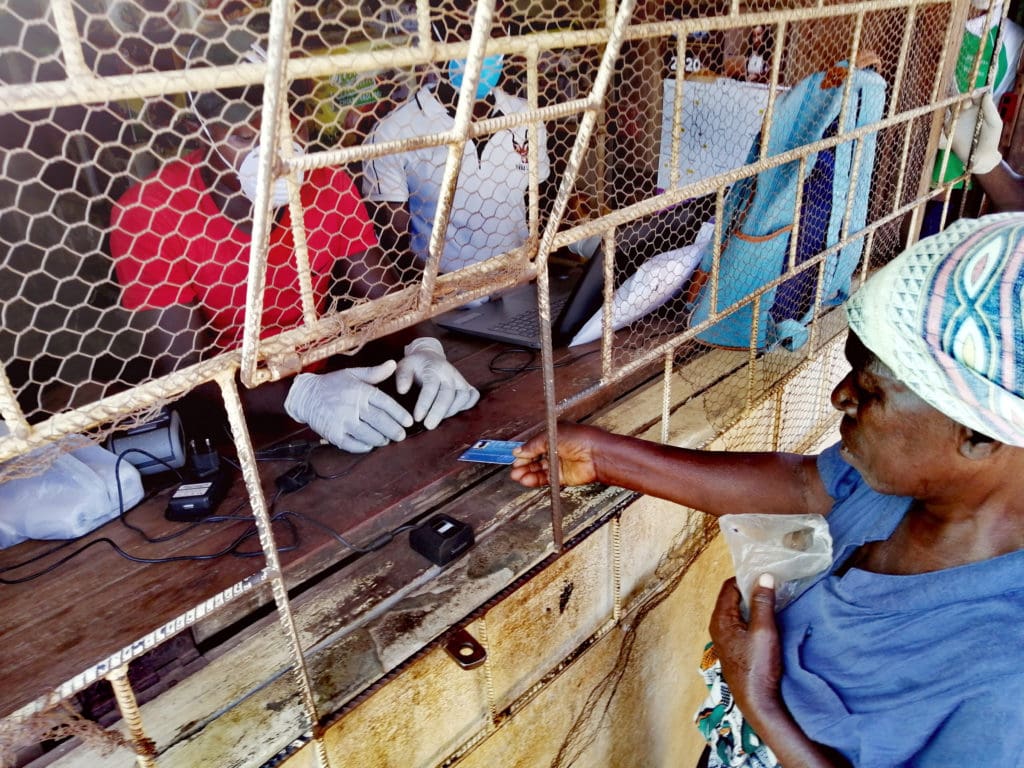
WFP’s cash distributions to women in Mozambique on March 26th were successfully implemented using preventative and safety measures like hand washing, social distancing, and the use of masks and gloves.
What malnutrition can do to a child
According to the nonprofit 1,000 Days, close to 200 million children suffer from chronic nutritional deprivation that leaves them permanently stunted – or unable to achieve their full potential to grow and thrive – and keeps families, communities and countries locked in a cycle of hunger and poverty. Stunting is one of the many examples of irreversible damage caused by malnutrition.
“When I first started traveling to Africa, I would often meet children in the villages I was visiting and try to guess their ages. I was shocked to find out how often I guessed wrong. Kids I thought were 7 or 8 years old based on how tall they were — would tell me that they were actually 12 or 13 years old.” – Bill Gates
Stunting doesn’t just refer to a child’s physical development either. Malnutrition can also seriously harm brain development. Stunted children are more likely to fall behind at school, miss key milestones in reading and math, and go on to live in poverty. When stunted children don’t reach their full potential, neither do their countries. Malnutrition saps a country’s strength, lowers productivity and keeps the entire nation trapped in poverty.
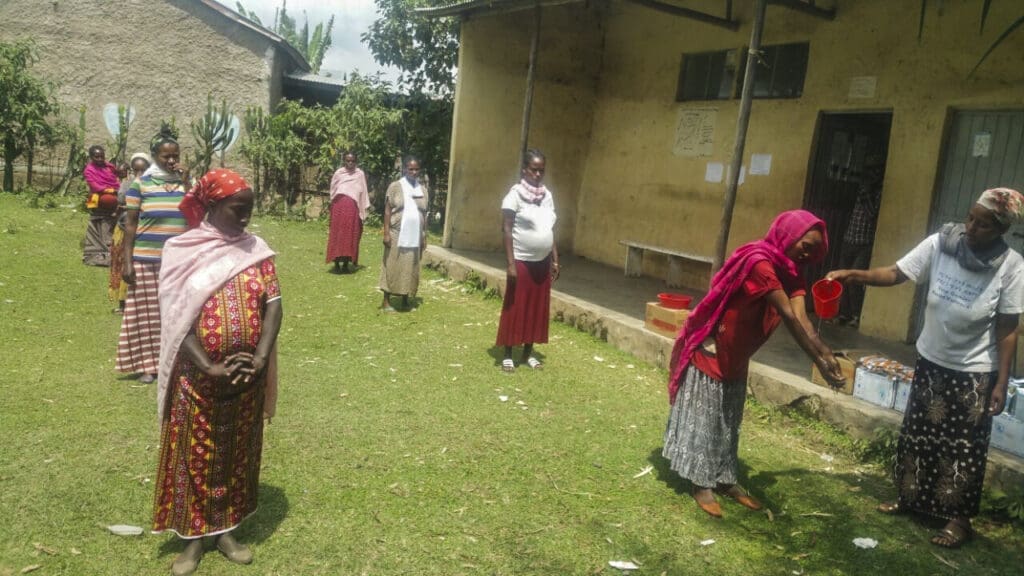
The pregnant women and new mothers here in Ethiopia take social distancing and hand washing measures to prevent the transmission of the coronavirus.
We’re focusing on mothers to save children around the world
With nearly 60 percent of the world’s chronically hungry people being women, there is an inextricable link between malnourished mothers and their babies. The key to ending malnutrition is not a mystery, nor does it require a high-tech innovation. It starts with the first 1,000 days of a child’s life. And it starts with the mother.
This is why the U.N. World Food Programme has made a commitment to protect those who need it most, including making sure families across the globe receive the necessary nutrition during the first 1,000 days of their child’s life. With COVID-19 putting even more pressure on already struggling moms, our interventions are crucial.
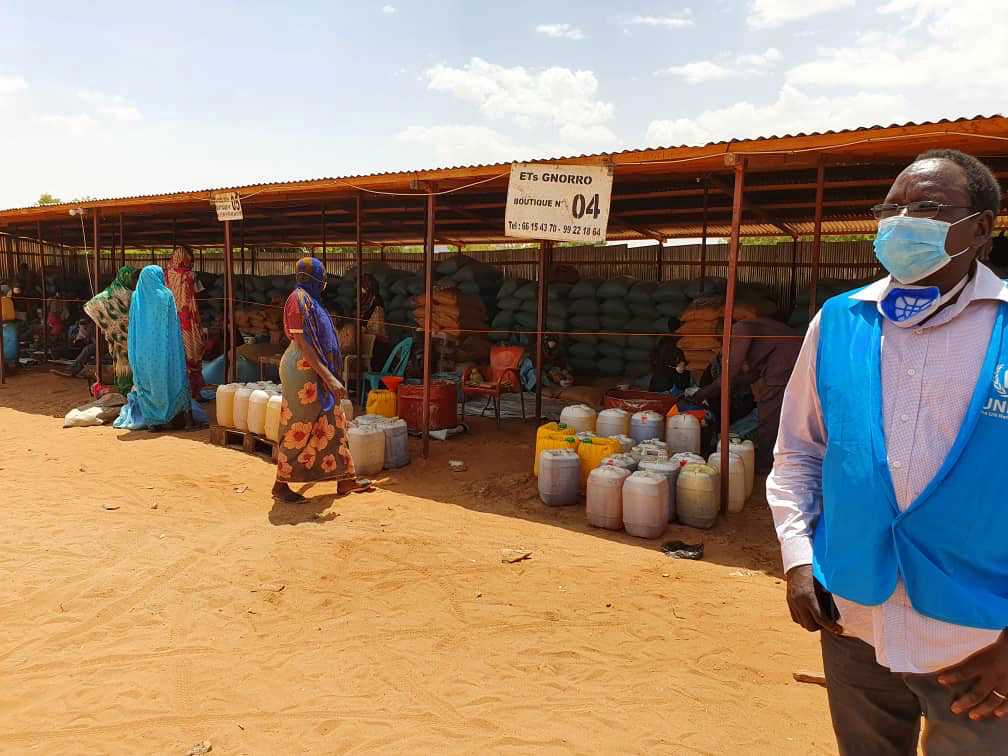
At the Djabal camp in Chad, a masked WFP staffer oversees the food distribution to Sudanese refugees which targets undernourished women and children.
U.N. World Food Programme programs to improve maternal and child health include:
- Providing nutrition education for expectant and new mothers, including the importance of exclusive breastfeeding for babies up to six months of age.
- Distributing fortified, ready-to-eat foods like Plumpy Nut that are rich in minerals and essential vitamins.
- Helping communities gain access to clean water and adequate sanitation to reduce the risk of diseases that rob the body of its ability to absorb vital nutrients.
- Partnering with other humanitarian NGOs, national governments and grassroots organizations on the Scaling Up Nutrition (SUN) movement to create an inclusive, multi-stakeholder, multi-sectoral strategy to tackle maternal and child malnutrition.
Thanks to the support of our donors, volunteers and a steadfast team of hunger experts living and working around the world, the U.N. World Food Programme reached over 16 million women and children with malnutrition treatment or prevention services last year.
Coronavirus is making it harder for mothers to keep their kids healthy, but the pandemic won’t slow us down. Here’s what you can do today to help:
Learn more about WFP’s Nutrition Programs.
Donate to WFP’s lifesaving work here or text WFPUSA to 243-725
